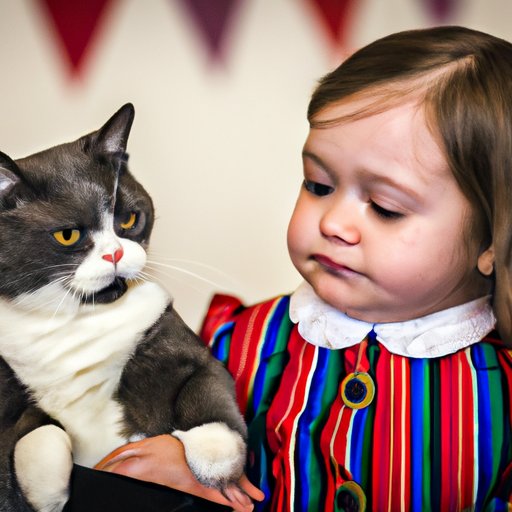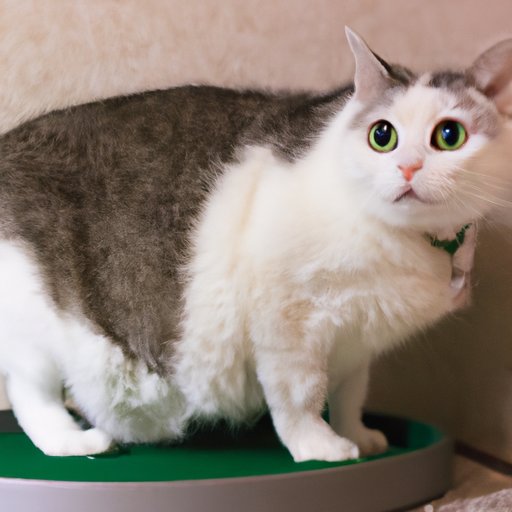Do Munchkin Cats Have Health Problems?
Munchkin cats have become increasingly popular in recent years due to their unique and adorable appearance. These cats are known for their short legs, which is the result of a genetic mutation. However, the genetic mutation responsible for their short-legged trait has sparked concerns about potential health problems associated with this breed. In this article, we will explore the genetic health of munchkin cats, debunk any myths or misconceptions about their health, and provide guidance on responsible cat care to ensure a happy and healthy feline companion.
Decoding the Genetic Health of Munchkin Cats: Exploring Common Health Issues
First, let’s delve into the genetic mutation that gives munchkin cats their distinctive short legs. Munchkin cats have a naturally occurring autosomal dominant gene called “short legs” or “Munchkin gene.” This gene affects the normal development of the cat’s long bones, resulting in shorter legs. While this genetic mutation has undoubtedly contributed to the popularity of munchkin cats, it has also raised concerns about potential health issues associated with this breed.
One of the primary concerns regarding munchkin cats’ health is the potential for skeletal issues and joint problems. Some critics argue that the shortened legs could lead to orthopedic problems and mobility issues. However, scientific evidence suggests that munchkin cats do not experience any significant disadvantages or pain due to their unique limb structure. They have been observed to adapt and move around without any difficulties.
Another controversial health issue associated with munchkin cats is lordosis, a spinal condition that causes excessive inward curvature of the spine. Again, scientific studies have shown that while munchkin cats may have a slightly higher likelihood of developing lordosis compared to other cats, it is not a widespread issue. Responsible breeders carefully select mate pairs to minimize the risk of lordosis and other potential health issues.
Some myths suggest that munchkin cats are prone to heart conditions. However, there is no scientific evidence to support this claim. Like any other breed, munchkin cats may be susceptible to certain heart problems, but it is not inherently linked to their genetic mutation for short legs.
Lastly, there have been anecdotal reports of digestive issues in munchkin cats. However, these cases are not unique to munchkin cats and can occur in cats of any breed. It is essential to remember that individual cats may have different health conditions, and not all health issues can be directly attributed to the munchkin gene.
It is crucial to present scientific evidence and studies that support the link between munchkin cats’ genetic mutation and potential health problems. Understanding the research and data available helps separate fact from fiction and make informed decisions about owning a munchkin cat.
Munchkin Cats: Debunking the Myth of Health Problems
Despite the concerns surrounding the health of munchkin cats, it is essential to debunk common misconceptions and clarify the difference between inherent health problems and potential health risks. While munchkin cats may have a slightly increased susceptibility to certain conditions, it does not mean they are inherently unhealthy.
In fact, numerous munchkin cats live long, healthy lives without experiencing any significant health issues. Many responsible breeders prioritize the overall health and well-being of their cats, ensuring that they are bred from healthy parent cats with no pre-existing health conditions.
Testimonials from owners of munchkin cats further debunk the myth of health problems. Many owners report that their munchkin cats are active, agile, and show no signs of pain or mobility issues associated with the short-legged trait. These firsthand accounts highlight that individual cats, just like humans, may have different health experiences.
While the overall health of a munchkin cat is not guaranteed solely based on their breed, responsible breeding practices and regular veterinary care play a crucial role in ensuring their well-being.
Health Implications of Munchkin Cat Breeding: What Every Potential Owner Should Know
When considering bringing a munchkin cat into your home, it is essential to understand the role of breeding practices in potential health problems. Like any other breed, poor breeding practices, such as inbreeding or careless mating, can increase the risk of health issues in munchkin cats.
Inbreeding, in particular, can lead to the expression of unhealthy recessive traits. Responsible breeders prioritize genetic diversity and conduct appropriate genetic testing to ensure their cats are healthy and free from inherited diseases or conditions.
If you are interested in adopting a munchkin cat, it is important to inquire about the breeder’s practices and ask if genetic testing has been performed on the parent cats. Reputable breeders take steps to minimize the risk of potential health problems and prioritize the well-being of their cats.
Alternatively, consider adopting a munchkin cat from a local rescue center or shelter. These organizations often assess the health of their animals before adoption, ensuring that you provide a loving home to a munchkin cat in need.

The Pros and Cons of Owning a Munchkin Cat: Understanding the Health Risks
Now that we have explored the potential health risks associated with munchkin cats, it is important to consider the pros and cons of owning this unique breed.
On the positive side, munchkin cats are known for their playful and active nature, which can provide endless entertainment and companionship. Their adorable appearance, with their short legs and disproportionately large eyes, has captivated many cat lovers.
However, it is essential to weigh these pros against the potential health risks involved. While munchkin cats can lead perfectly healthy lives, there is an increased vulnerability to certain health issues compared to regular cats. This means that as an owner, you may need to be more vigilant and proactive in monitoring your munchkin cat’s health. Regular veterinary check-ups and preventive care are crucial to ensure any potential issues are addressed early.
Additionally, potential owners should consider the financial implications of owning a munchkin cat. While routine care is similar to any other cat, the possibility of needing specialized veterinary care or treatments for potential health issues may incur additional expenses. It is essential to be prepared for the financial responsibility that comes with owning a cat, regardless of the breed.
By carefully considering the pros and cons, potential owners can make an informed decision that aligns with their lifestyle and willingness to provide the necessary care.
A Closer Look at the Health Profile of Munchkin Cats: Separating Fact from Fiction
It is important to take an objective approach when evaluating the health profile of munchkin cats, separate from any unfounded claims or exaggerated health problems associated with this breed.
While there may be specific health risks associated with the munchkin gene, it is crucial to remember that not all munchkin cats will encounter these issues. Responsible breeding practices, regular veterinary care, and considering the overall health of the cat’s lineage play a significant role in minimizing potential health problems.
Furthermore, proper care and regular veterinary check-ups help maintain a munchkin cat’s health. Observing for any signs of health issues and seeking prompt medical attention when necessary can greatly contribute to the well-being of your feline friend.
Munchkin Cats and Health: How to Ensure a Happy and Healthy Feline Companion
Owning a munchkin cat can be a rewarding experience, provided that you prioritize their health and well-being. Here are a few key tips to ensure a happy and healthy feline companion:
- Regular veterinary visits and preventive care: Schedule routine check-ups, vaccinations, and screenings to catch any potential health issues early.
- Appropriate exercise and diet: Munchkin cats are active and playful, so provide ample opportunities for exercise and ensure a balanced diet tailored to their needs.
- Observing for any signs of health issues and seeking prompt medical attention: Be vigilant about any changes in behavior, appetite, or physical symptoms, and consult with a veterinarian if you have any concerns.
- Creating a safe and stimulating environment: Munchkin cats, like any other cats, require a safe and enriching living space. Provide scratching posts, toys, and interactive playtime to keep them mentally stimulated.
In conclusion, munchkin cats, known for their short legs and unique appearance, have sparked discussions about potential health problems associated with their genetic mutation. While there are valid concerns, it is important to separate fact from fiction. Responsible breeding practices, regular veterinary care, and creating a supportive environment can help ensure a happy and healthy life for your munchkin cat. By understanding the genetic health of munchkin cats and debunking any misconceptions, potential and current owners can prioritize the well-being of their feline companions.
(Note: Is this article not meeting your expectations? Do you have knowledge or insights to share? Unlock new opportunities and expand your reach by joining our authors team. Click Registration to join us and share your expertise with our readers.)
